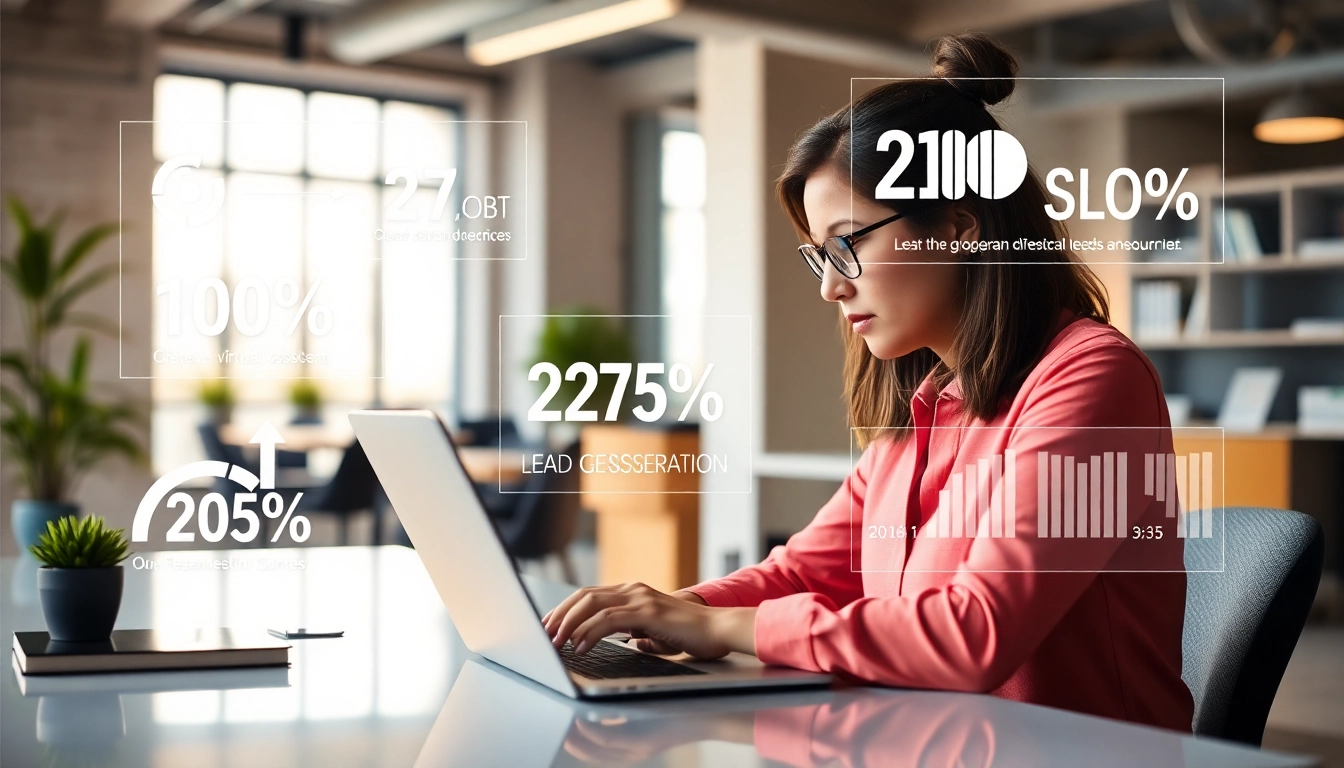Understanding AI Marketing Agents
What Are AI Marketing Agents?
AI marketing agents are software tools that leverage artificial intelligence to automate various marketing tasks. They are designed to perform specific functions, such as data analysis, customer engagement, and content creation, which traditionally required human intervention. By using AI algorithms, these agents can handle a range of marketing processes with a degree of autonomy while still requiring oversight from human marketers. This allows businesses to enhance their marketing efficiency, streamline workflows, and focus on creative strategy and customer relations.
Moreover, AI marketing agents bridge the gap between advanced technology and marketing expertise, providing teams with tools that can optimize performance in real time.
The Role of AI in Marketing Automation
Marketing automation has been a game-changer for businesses, and the integration of AI amplifies its benefits. AI can analyze vast amounts of data, identify patterns, and automate repetitive tasks, thereby freeing up time for marketers to engage in more strategic initiatives. With AI marketing agents, businesses can automate customer segmentation, personalize content delivery, and optimize campaigns based on data-driven insights.
For instance, AI agents can segment audiences by analyzing behavior and engagement levels, enabling marketers to tailor messages that resonate with specific user groups. Campaign optimization is also enhanced with AI by continuously learning from incoming data to make adjustments that improve performance and drive better results.
Exploring Human Oversight in AI Marketing
While AI marketing agents can operate autonomously, human oversight remains essential to ensure that the automated processes align with brand values and marketing goals. Human marketers play a crucial role in overseeing the implementation of AI strategies by analyzing results, adjusting tactics, and injecting a human touch where algorithmic solutions fall short.
This collaboration between AI and humans leads to a more profound marketing insight and strategic decision-making. For instance, while an AI agent can suggest content based on data trends, a marketer can evaluate the appropriateness of that content through a more nuanced perspective that considers current cultural contexts and brand integrity.
Benefits of Implementing AI Marketing Agents
Efficiency in Campaign Management
One of the primary advantages of using AI marketing agents is the significant boost in efficiency in campaign management. AI systems can handle multiple tasks simultaneously, such as monitoring advertisement performance across various channels, managing social media interactions, and even optimizing email marketing campaigns.
By automating these processes, businesses can reduce the time spent on menial tasks and enable their marketing teams to focus on strategy, creativity, and relationship-building. This shift not only enhances productivity but also increases campaign responsiveness, allowing brands to adapt to market changes or customer feedback in real time.
Enhancing Customer Segmentation
Accurate customer segmentation is critical for effective marketing. AI marketing agents utilize advanced algorithms to analyze customer data from various sources — including website interactions, purchase history, and social media engagement — to identify and segment audiences based on their behaviors and preferences.
Enhanced segmentation allows marketers to create more targeted and relevant campaigns, which in turn can lead to higher engagement rates and conversion. For example, an AI agent focusing on customer behavior can create unique segments for prospects who have shown interest in a specific product category, allowing personalized marketing strategies that cater to each group’s unique needs.
Personalization at Scale with AI
Personalization has become a critical expectation among consumers today. AI marketing agents facilitate the delivery of personalized experiences at scale. They can analyze individual user data to tailor content, offers, and recommendations, ensuring a unique customer journey for every individual.
For instance, eCommerce businesses might employ AI agents to suggest products based on previous purchases and browsing behavior, significantly enhancing the likelihood of repeat purchases. Similarly, email marketing campaigns can be tailored using AI-generated insights, targeting specific subgroups within audiences with the right message at the right time, ultimately leading to improved customer satisfaction and loyalty.
How to Choose the Right AI Marketing Agent
Identifying Your Marketing Needs
The first step in selecting an AI marketing agent is to clearly identify your specific marketing needs. Businesses should evaluate what challenges they are trying to resolve, whether it be improving customer engagement, enhancing content delivery, or optimizing ad performance. By outlining these goals, organizations can narrow down their search to AI solutions tailored to their unique requirements.
Evaluating Features & Capabilities
Once marketing needs are established, the next step is to evaluate the features and capabilities of potential AI marketing agents. Key features to consider may include:
- Data analytics and reporting capabilities
- Integration with existing tools and platforms
- Support for various marketing channels (email, social media, web, etc.)
- Ease of use and user interface design
- Scalability to grow with your business
Prioritize solutions that provide comprehensive case studies or testimonials to validate their effectiveness within the space you operate.
Considering Cost vs. Value
Every organization must weigh the costs associated with AI marketing agents against the value they provide. While AI tools may come with a significant upfront investment, companies should consider the long-term savings and potential revenue increases that these agents can facilitate.
It’s also worth exploring subscription models versus one-time purchases, as flexibility in pricing can make the integration of AI technologies within budget constraints more manageable. Furthermore, evaluate not only the financial ROI but also the impact on customer satisfaction and loyalty.
Case Studies: Success Stories with AI Marketing Agents
Transforming Campaign Performance
Numerous case studies highlight the transformative impact of AI marketing agents on campaign performance. For instance, a leading retail company utilized an AI marketing agent to analyze previous campaign data and optimize ad placements in real time. The immediate outcome was a boost in engagement rates by over 30%, leading to a subsequent increase in sales volume during the campaign period.
Another example can be seen in the travel industry, where an AI-driven chatbot improved customer service response times exponentially, resulting in higher satisfaction scores and increased bookings through enhanced user experience.
Boosting ROI Through Data Analytics
AI marketing agents also excel at leveraging data analytics to boost return on investment (ROI). A technology company implemented an AI-driven pricing tool that analyzed competitor pricing in real-time. The insights provided allowed the company to adjust its prices dynamically based on market conditions, ultimately leading to a 15% increase in profit margins.
Additionally, by using predictive analytics, another company managed to enhance customer retention by identifying early signals of customer disengagement. Proactive outreach strategies informed by these insights resulted in a 20% reduction in churn rates.
Real-Life Applications in Industry
AI marketing agents are utilized across various industries, including healthcare, finance, and eCommerce. In healthcare, for instance, AI-powered tools assist organizations in managing patient engagement campaigns efficiently by sending personalized appointment reminders based on historical data.
Financial institutions use AI agents to automate compliance auditing and fraud detection, which helps minimize losses and enhance customer trust. AI-driven analytics improve client relationships and yield insights into investment trends, enabling financial advisors to provide tailored advice to clients.
Future Trends in AI Marketing Agents
Emerging Technologies and Innovations
The landscape of AI marketing agents is set to evolve further as emerging technologies and innovations take center stage. For instance, advancements in machine learning and deep learning will allow marketing agents to become even more sophisticated in predicting customer behavior and creating tailored content.
Moreover, as natural language processing (NLP) technology advances, AI agents will become more adept at understanding and generating human-like responses, enhancing customer interactions and the overall user experience significantly.
The Role of AI in Future Marketing Strategies
Looking ahead, AI marketing agents are expected to play pivotal roles in shaping future marketing strategies. The integration of AI will allow brands to move from reactive to proactive marketing, adjusting campaigns in real-time based on incoming data and audience reactions.
Moreover, as more businesses adopt artificial intelligence, the marketing landscape will likely see a heightened focus on ethical AI practices to ensure consumer trust and preference remain intact.
Preparing for AI Integration in Your Team
For organizations looking to integrate AI marketing agents into their operations, preparation is key. Teams should undergo training to familiarize themselves with AI tools and understand their functionalities. Additionally, establishing a culture that embraces innovation and data-driven decision-making will facilitate smoother transitions and better adoption rates.
Furthermore, regular evaluations of AI tools will be necessary to ensure their continued alignment with business goals and marketing strategies, allowing for continuous improvement and adaptation in a competitive market environment.



